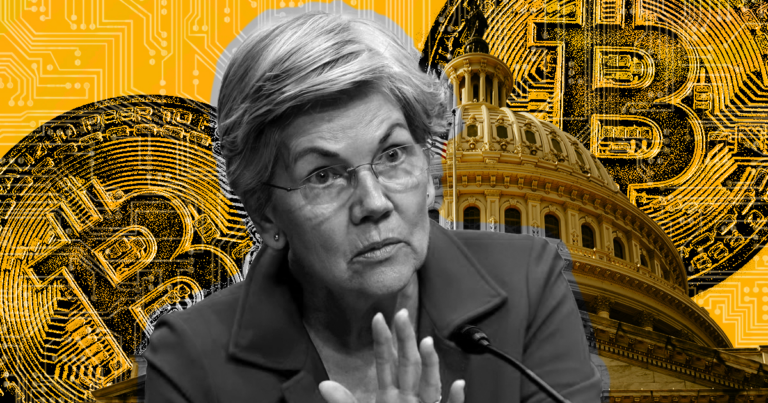 Elizabeth Warren-led US lawmakers demand probe of ERCOT’s support for Bitcoin miners in Texas
Elizabeth Warren-led US lawmakers demand probe of ERCOT’s support for Bitcoin miners in Texas Elizabeth Warren-led US lawmakers demand probe of ERCOT’s support for Bitcoin miners in Texas
Lawmakers argued that ERCOT's support for crypto is irresponsible as miners are paid to offset energy load from the grid at the expense of Texan residents.

Cover art/illustration via CryptoSlate. Image includes combined content which may include AI-generated content.
A group of U.S. lawmakers led by Senator Elizabeth Warren has asked the Electricity Reliability Council of Texas (ERCOT) to provide operational and financial information about Bitcoin miners in Texas.
Texas is home to about 30 crypto-mining companies consuming about 9% of the global mining power. By the end of 2023, the emission rate is expected to surge up to 20%.
In a letter addressed to ERCOT CEO Pablo Vegas, the lawmakers alleged that “cheap labor and laissez-faire regulation” has led to the influx of crypto miners into Texas, making the state a “deregulated safe harbor.”
The lawmakers argued that ERCOT’s policy support for the miners has increased their demand for grid power, affecting residents’ electricity bills.
The lawmakers said:
“Given the impacts of crypto mining on the climate, the grid, and to ratepayers, ERCOT’s support for this industry is irresponsible and highly concerning.”
The lawmakers warned that the increased demand for energy by the miners could expose the grid to another collapse, similar to the Feb. 2021 blackout that left 246 people dead.
ERCOT’s “demand response” making Miners richer
The ERCOT demand response program was designed to pay energy consumers for voluntarily curtailing their usage during periods of high energy demand.
Earlier in June, miners in the state collectively saved up to 1,000 megawatts of energy. However, the lawmakers argued that economic incentives were driving their decisions.
Texas’ largest miner, Riot Blockchain, reportedly made about $9.5 million by participating in the ERCOT program, which was $5.6 million higher than they made from selling Bitcoin in July 2022.
According to the lawmakers:
“The Bitcoin miners make money from mining that produces major strains on the electric grid: and during peak demand when the profitability of continuing to mine decreases, they then collect subsidies in the form of demand response payment when they shut off their mining operation and do nothing.”
The lawmakers added that it is unfair to pay crypto miners for taking off the energy load they add to the grid at the expense of ratepayers.
The lawmakers have asked ERCOT to provide details on financial allocations made to miners, energy cost implications to families and local businesses, and the amount of carbon emission from the miners’ operations.











































































































